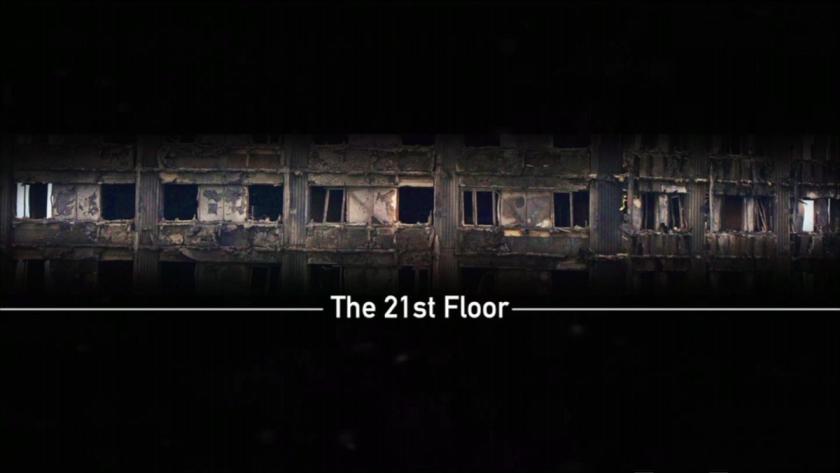The streets around Grenfell Tower on the morning after it was consumed by fire heaved with people. A stream of donors brought food, clothes and toiletries, while news crews and journalists came in vans or on foot as if arriving in a war zone. Not half a mile from the smouldering sarcophagus, I cycled past a primary school with children playing as normal in the playground, and wondered if this was what the Blitz was like. An unfathomable disaster on the doorstep. The only certain difference was in the camera phones aimed ravenously at the flames still licking the flanks of the tower.
Stories fall out of the 24-hour news cycle – see Stephen Paddock’s mass slaughter in Las Vegas – but on the 14th of every month survivors of Grenfell Tower march through local streets to demand justice. This Newsnight, broadcast on BBC Two at the unusual time of 7pm and already available on YouTube, will get the message out a little further. And yet in half an hour it barely touched on the idea of a judicial aftermath. It didn’t mention the Royal Borough of Kensington and Chelsea once, and neither blamed nor praised the fire service. That is for other news documentaries. This was a simple and well-crafted account, by reporter Katie Razzall, of what happened to the inhabitants of one floor of the building.
The faces and the voices in this film formed a picture of London the way it is now
It was initially reported that no one had survived from the top three floors. The 21st floor was presumably chosen because its story holds tragedy and miracle in balance. The tragedy was the death of Ligaya Moore, a retired Filipino woman who arrived in the UK 45 years earlier. Believed to be in her 80s, she still climbed the stairs for exercise. The last friend who spoke to her hoped she had simply slept through the fire. The tragedy was the Al Wahabi family, whose flat was a mini-Morocco. Instructed to stay put and then, as the fire worked round the building, to hide in a bedroom, all five of them died. The youngest of them, Mehdi, was eight.
The miracle was the extraordinary survival of everyone else on the floor. The four-strong Gomes family also heeded the fire service’s advice until there was no option but to attempt an escape. With their Eritrean neighbour Helen Gebremeskel and her daughter Lulya, they made a remarkable descent organised by the remarkable clear-thinking of Marcio Gomes, who like his wife Andreia is originally from Portugal. The miracle for Lee Stewart and Julian Ng, new private tenants, is that they were staying in a hotel to celebrate Lee’s birthday. (Another survivor, Mustafa Sirag Abdu from Eritrea, preferred not to participate in the film.)
This was a story of human resourcefulness but it was also a quiet paean to a London community. A prejudice swiftly took root that Grenfell was a vortex of poverty. Whatever an outsider’s idea of a high-rise tower block might be, it wouldn’t have been the stylish décor of Helen Gebremeskel, digitally reimagined here, or the smartly finished pad for which Lee and Julian paid £400 a week. The faces and voices in this film formed a picture of London the way it is now, the way the vast majority of Londoners like it.
The tally of the dead has never been established. Alas another can be added to it in the shape of Andreia’s unborn child, who died in the womb. “My Moses basket was on fire,” said Marcio, which was somehow the saddest detail of all. It was the sign he needed to take the lives of his family and his neighbours into his own hands.
- Watch Newsnight: Grenfell Tower - The 21st Floor on YouTube
- Read more TV reviews on theartsdesk















Add comment